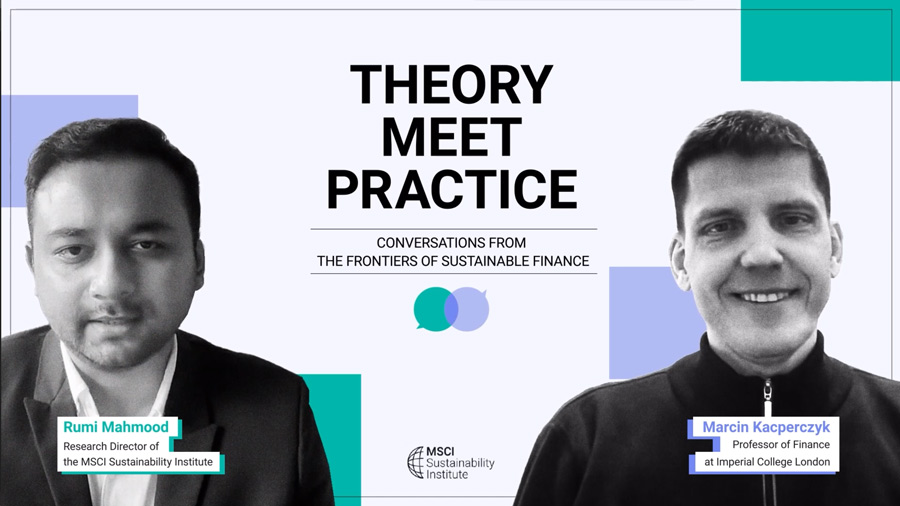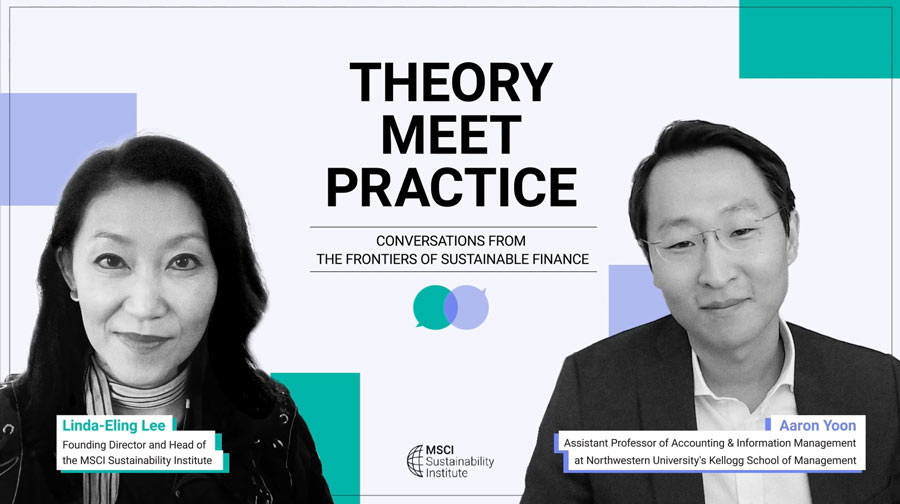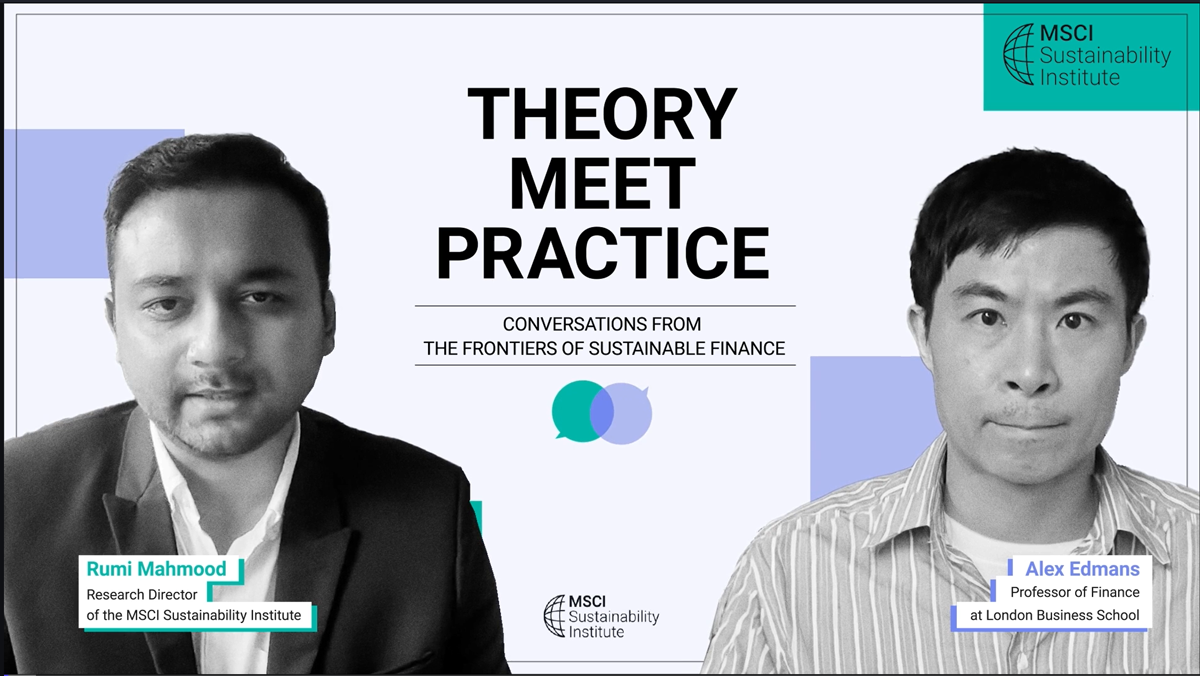Episode 5: Discussing systems-level thinking with Caroline Flammer
Are companies and investors thinking holistically enough when it comes to addressing global challenges such as social inequality or climate change? No says Caroline Flammer, the A. Barton Hepburn Professor of Economics at Columbia University, who joined me recently on “Theory Meet Practice” to discuss her research into areas ranging from corporate diversity and climate investment to blended finance and why companies, investors and policymakers alike can benefit by seeing the whole and just the parts.
“
Caroline Flammer shares her desert island paper
What academic paper on sustainable finance (besides one of her own) would Caroline Flammer want with her if stranded on a desert island?
“One paper is not going to cut it,” she laughs. Instead, she’d take two books: “21st Century Investing: Redirecting Financial Strategies to Drive Systems Change,” by William Burckart and Steve Lydenberg, and “Moving Beyond Modern Portfolio Theory: Investing That Matters,” by Jon Lukomnik and James P. Hawley. “If you know me even just a tiny little bit, you know my incentive is to stay on that island for a longer period of time,” she says.
Efforts by companies to achieve diversity, equity and inclusion, for example, spans aims, from bringing a range of perspectives to bear on decision-making and providing fair access to opportunities to making everyone feel encouraged to contribute, she observes.
Yet while it’s tempting for companies to focus on demographic diversity as a shorthand for progress — think quotas for women in leadership or awareness days for underrepresented groups — these efforts don’t begin to address the breadth of the challenge, suggests Flammer, whose research finds that a more multifaced, comprehensive view of diversity has correlated positively with key measures of future profitability and innovation.
“If we think about how to implement diversity in organizations, we should really look at it much more holistically than just gender or race and think about how we can really ensure diversity, equity and inclusiveness,” says Flammer. “A quota gives you a seat at the table, but it’s not going to give you a voice.”
The narrow lens on diversity provided by measuring only gender differences may also be one reason that findings on the link between diversity and firm performance have been mixed. Companies that focus solely on boosting the number of women or minorities in their workforce may hit their targets but are unlikely to see any real change if they don’t create environments where everyone feels included, Flammer says.
The broader system
Investors can see something similar when it comes to climate. While an increase in the number of countries mandating that companies publish their carbon footprints would constitute progress, companies can game mandatory disclosure that doesn’t address the totality of their emissions by outsourcing their most carbon-intensive activities to suppliers. “It looks like they’ve cleaned up their act, but nothing has really changed,” Flammer observes.
Investors too can benefit by looking beyond the confines of their portfolios. Financial theory may treat systemic risks like climate change as exogenous, notes Flammer, but that won’t protect investments from the threats of a warming planet over time.
“You can hedge a portfolio’s risks against climate news in the short term, she notes, “but that doesn’t take into account the long-term implications of our investments on climate change, nor does it take into account the increasing risks and costs of climate change on your portfolio’s performance in the long term.”
The value of encouraging systems-level thinking led Flammer and her colleagues to launch the Sustainable Investing Research Initiative at Columbia with the aim of producing scholarship, education and dialogue that advances knowledge in the field. The initiative includes a focus on so-called blended finance (the use of the use of public or philanthropic funds to crowd in private capital) for climate technologies, renewable energy and nature-based solutions, particularly in the Global South.
The need to scale climate finance for developing countries, including via blended finance, is expected to be among areas of focus at the COP29 climate conference. At an inaugural roundtable earlier this year, Flammer and her colleagues convened key leaders from finance, academia, policymaking and philanthropy to examine how to incentivize private investment in blended finance.
“We need a much better understanding for how you create these public-private-philanthropic partnerships,” says Flammer. “What is the ideal risk allocation across these funds? What is the role of rating agencies and data providers, and how can we scale up the global marketplace for blended finance in order to serve as a catalyst to crowd in more private capital and close this financing gap.”
There too, the answers rely on looking at the full range of risks and the relationships among stakeholders across society, says Flammer. “We need to move away from just portfolio-level thinking and really take into consideration the implications of our measurements or actions for the broader planetary and societal system and vice versa,” she says.


